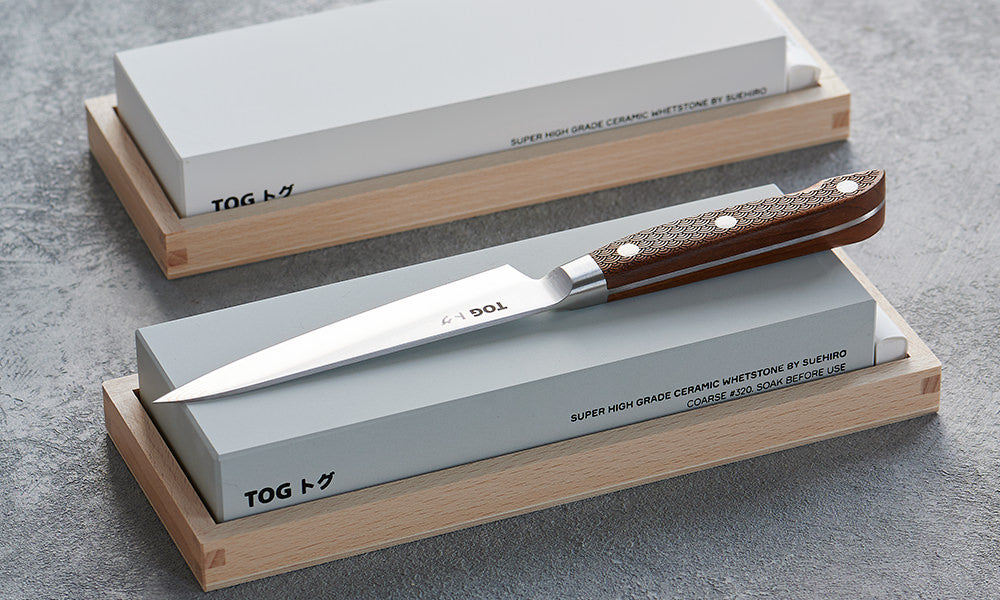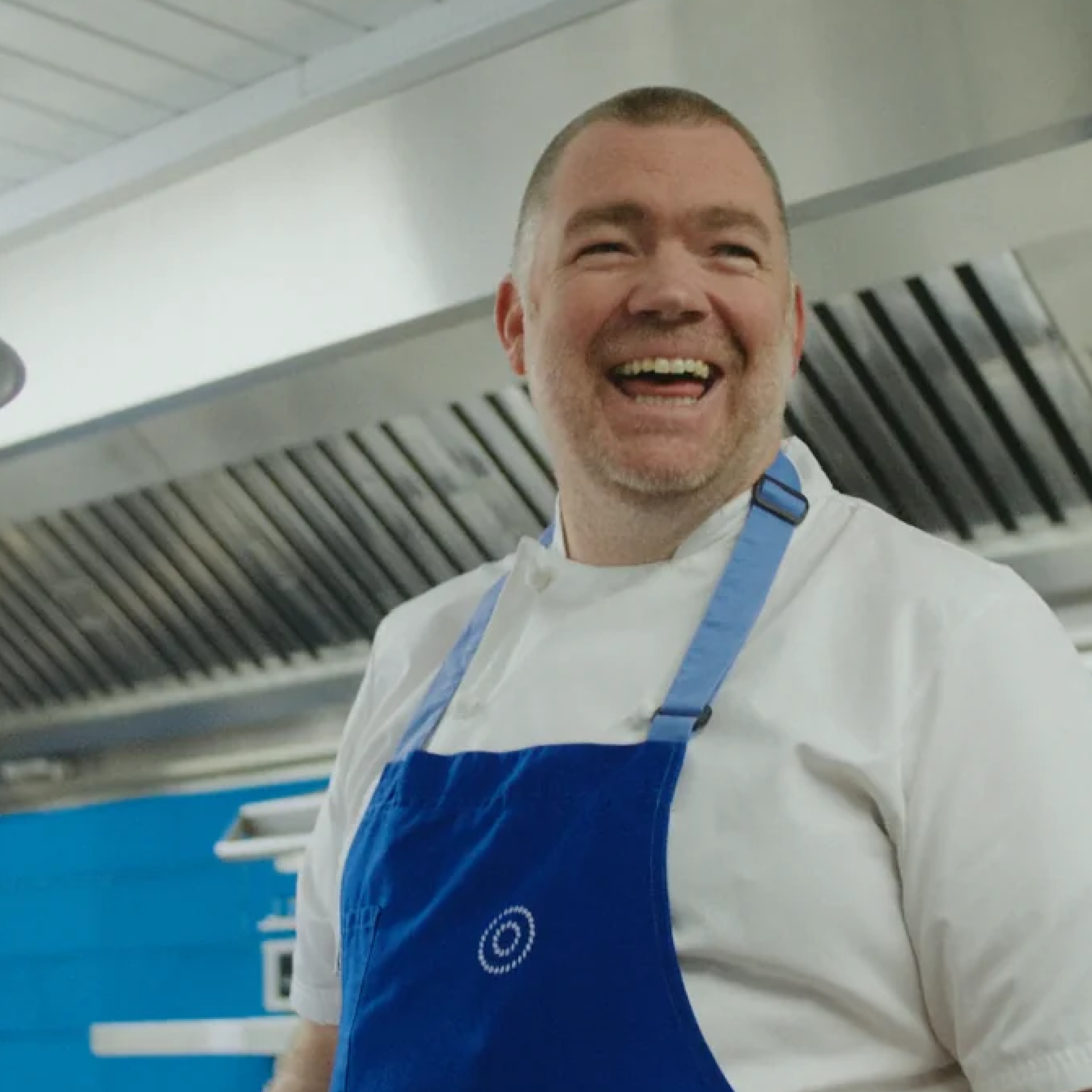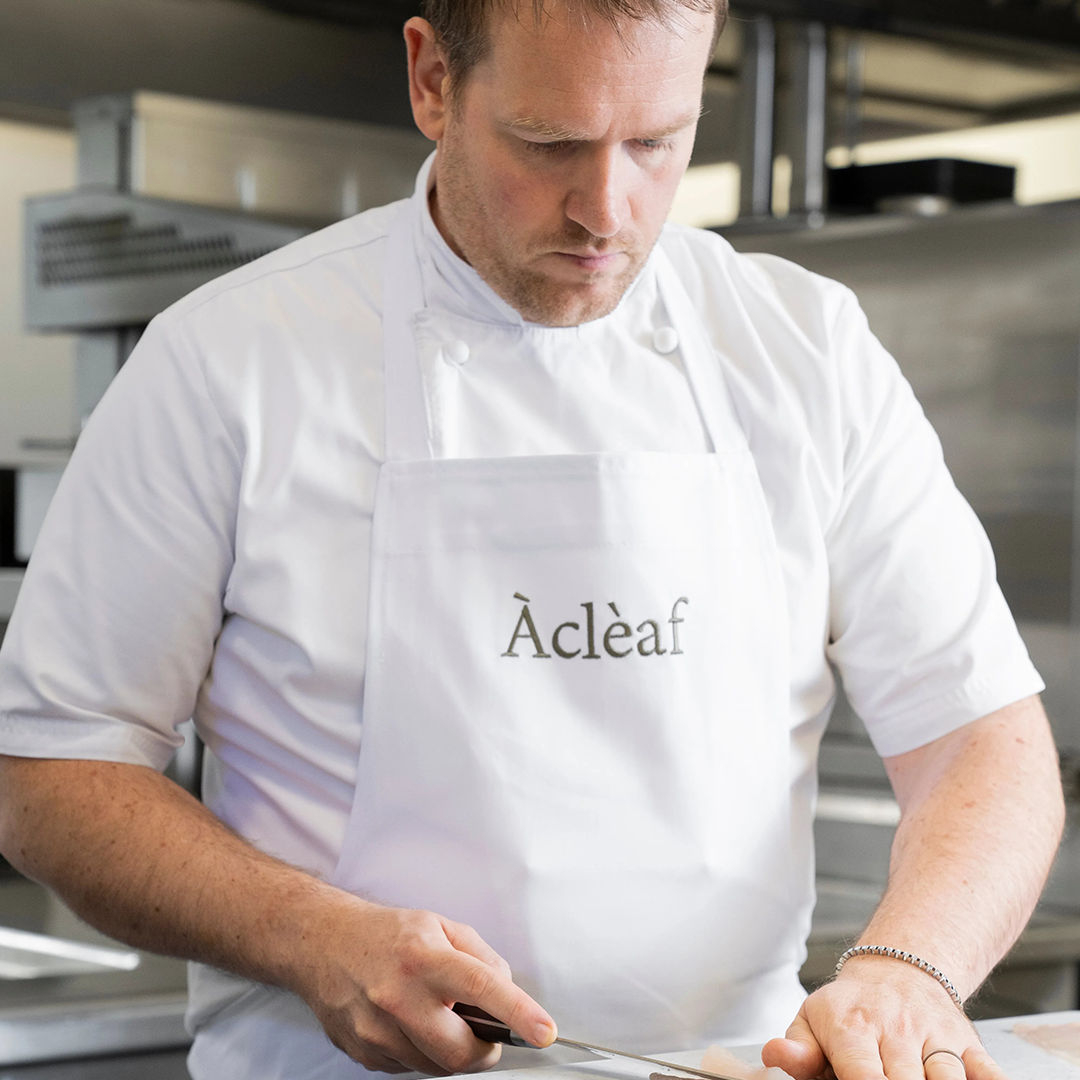A honing rod or steel is the best way of maintaining the edge of a sharp knife. You can’t use one to grind a new edge onto a blunt knife. If your knife is really blunt or chipped you need to use a more abrasive method like whetstones to get a new edge.
Read about how to sharpen a knife with a whetstone here.
Steels / rods are super quick and easy. Use one weekly at home, or daily in a professional kitchen. It only takes a few seconds once you’ve got the hang of it.
A honing rod is also a great way of removing the burr created by a whetstone, so it’s an important part of the whetstone sharpening process. Use it after a coarse or medium whetstone, but not after a fine or polishing whetstone.
Before we go any further, we need to define a couple of terms:
“Sharpening” means removing blade material and grinding an edge onto a knife. Any knife can be sharpened no matter how blunt.
“Honing” means straightening the edge of a knife using a honing rod or “hone”. Tiny bits of the cutting edge get bent / folded over during normal use. Regular honing significantly extends the life of a knife that is already sharp. The term is also used to mean ‘refining’ in terms of sharpening.

WHAT TYPES OF STEEL ARE AVAILABLE?
Let’s look at the different types of steel on the market:
TRADITIONAL STEEL

These are made of steel and normally have fine ridges running along the length. They work to hone an edge, but do not sharpen it. They are the least effective type, especially on hard Japanese steels, because they material they’re made of is soft compared to diamond and ceramic rods.
DIAMOND STEEL

Likewise, these are metal rods but this time covered in tiny industrial diamonds. These tend to be quite coarse / aggressive. This means they work quickly and can sharpen fairly dull knives. However, it also means they remove material quickly which, in our view, makes them unsuitable for regular use as they wear your blade down too fast. Also, the diamonds wear off after time, making the diamond steel less effective.
CERAMIC HONING ROD
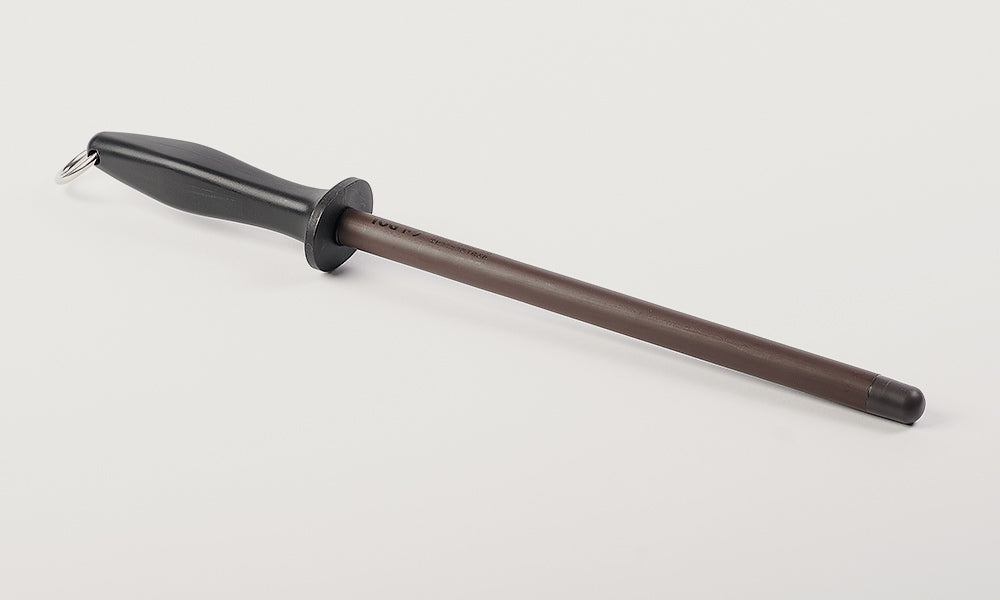
In our opinion this is the best type of rod to use, especially for Japanese knives. The ceramic material is much harder than any metal, so it can hone even the hardest Japanese steels. It has an abrasive surface equivalent to a 2000 grit whetstone, so is brilliant for refining the edge of a knife after a coarse or medium whetstone and slightly sharpens the knife. The downside of a ceramic rod is the risk of it breaking if dropped. However, the TOG ceramic honing rod has a 3-part shock absorber system that absorbs 70% of the impact, greatly reducing this risk.
HOW TO USE A STEEL OR HONING ROD
1. FREEHAND METHOD
This is the most common method used by chefs. The honing rod is held in front of you in your non-dominant hand. The knife edge is swept from the tip of the rod down towards the handle, from the heel to tip of the blade. The spine of the knife trails behind the cutting edge.
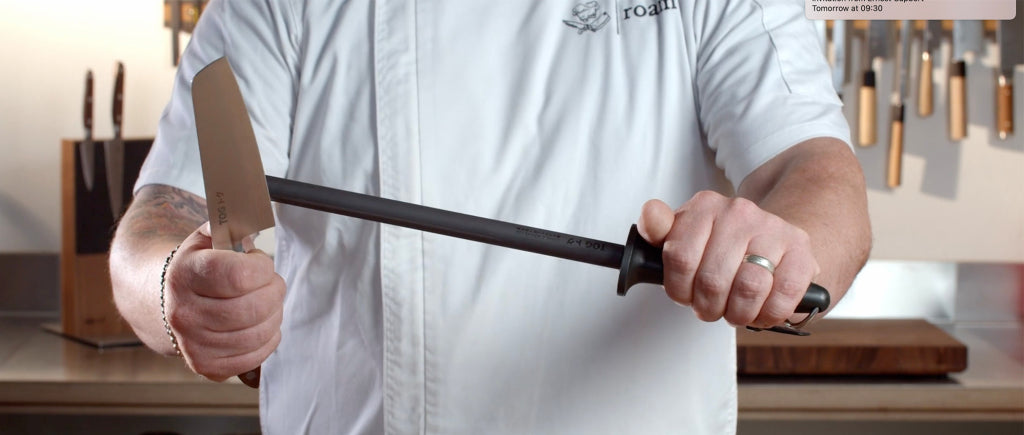
2. BODY-BRACED METHOD
Here you brace the end of the handle of the steel against your body, giving you more stability and control. The knife edge is swept down away from the handle of the rod, starting with the heel of the knife and moving towards the tip. Again, the spine of the knife trails behind the cutting edge.

3. BENCH METHOD
This is the method TOG recommends because it is the safest, easiest and most precise. Place the tip of the rod on a worksurface that stops the tip sliding sideways. Sweep the edge of the knife from the top (handle end) of the rod down to the bottom, from the heel to the tip of the edge.
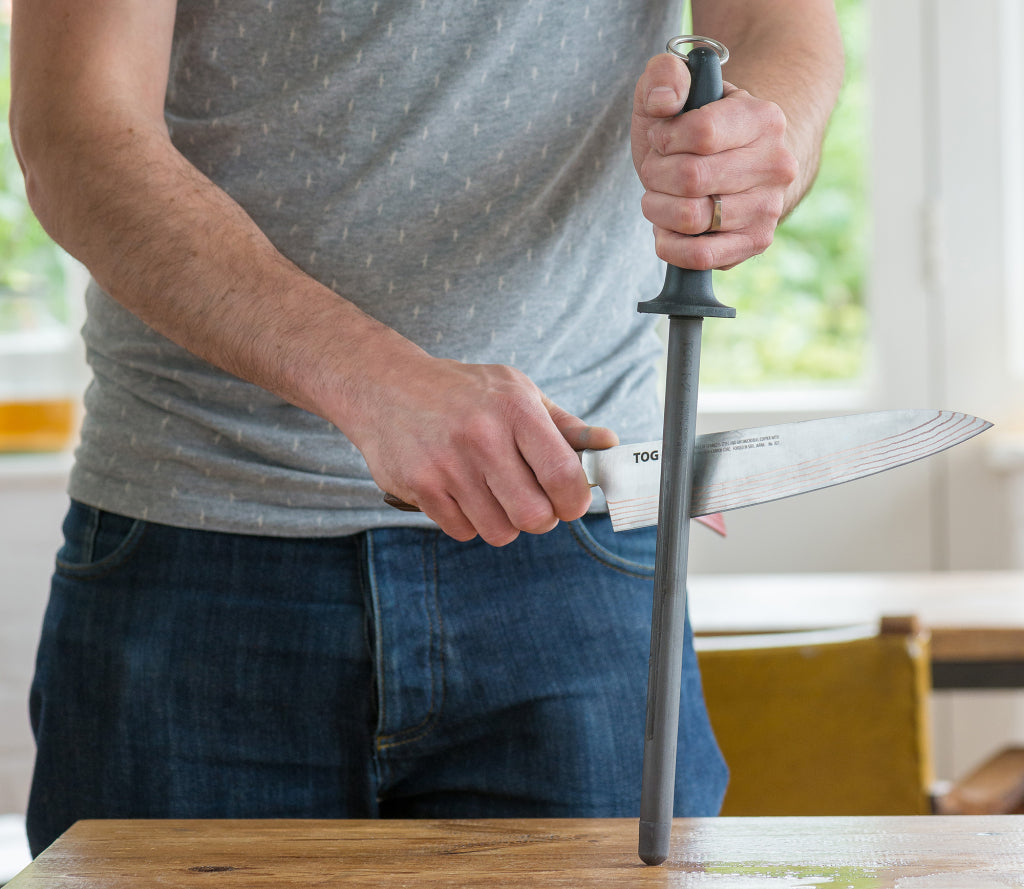
These three methods are much better understood by watching our video.
Whichever of them you use, the MOST IMPORTANT thing is that you set your angle correctly at 15º for Japanese knives or 20º for German / Western knives. You must keep this angle constant at all times. You cannot harm an edge by honing it too much but if your angle is too great, you can roll the edge over, rendering the knife blunt.
The MOST IMPORTANT thing is that you set your angle correctly at 15º for Japanese knives or 20º for Western knives.
You can use a TOG angle guide to set the angle. Alternatively, set the blade perpendicular to the rod then halve the angle to get 45º then halve it again to get 22.5º, then judge from there.
You need to do about 5 strokes of the blade on each side of the rod with pretty firm pressure, although you may need a few more if the edge is a little duller.

HOW TO LOOK AFTER A CERAMIC HONING ROD
Use a damp cloth or damp kitchen roll to wipe the rod and remove tiny bits of black steel from the surface. You’ll get more of this on abrasive rods.
You should avoid touching the rod with your fingers or otherwise getting oil on it. Use washing up liquid to remove any oil that gets on it.

It shouldn’t take long to get the hang of using a honing rod. For most people this will be the tool they use the most for keeping their knives sharp.
Give it a go.



